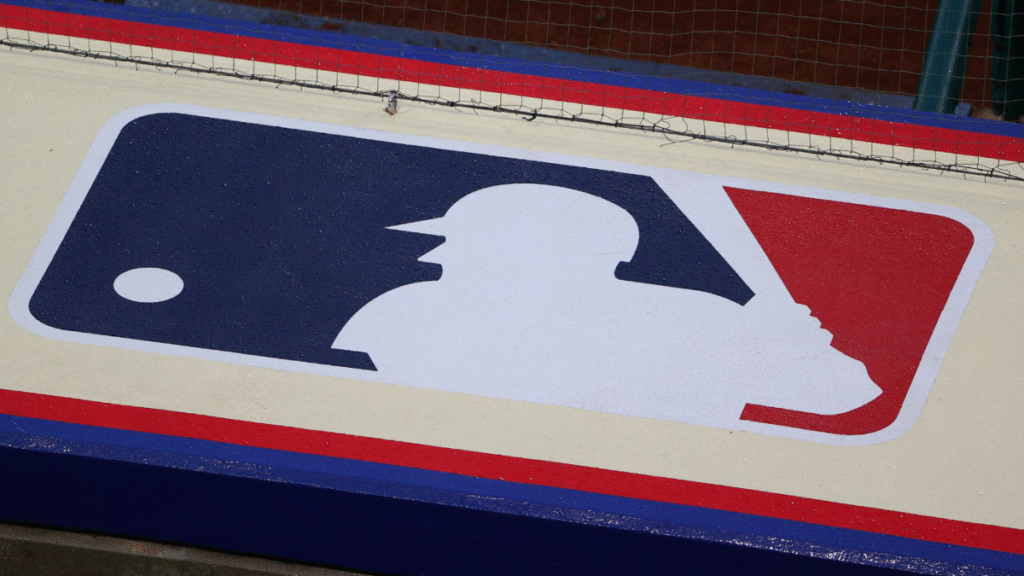College sports’ power conferences — Big Ten, SEC, ACC and Big 12 — have hired a high-profile investigator in professional sports to lead their new governing body that will oversee revenue sharing and NIL contracts.
MLB executive Bryan Seeley has been hired after a months-long search for a CEO to lead the new College Sports Commission, a spokesperson for the power conferences told CBS Sports on Friday. Seeley emerged as the leader in May as the four commissioners, alongside a group of athletic directors, began finalizing plans for implementation of the long-awaited House v. NCAA settlement, which was approved on Friday.
All four power conference commisioners released a joint statement commending Seeley’s hiring.
“Bryan brings unwavering integrity and a wealth of relevant experience to his new role leading the College Sports Commission and working to ensure a smooth implementation of this new system,” the statement read. “We’re grateful to have an individual with his credentials and expertise at the helm, and we look forward to his leadership as we transition into this new era of college sports.”
Seeley has spent the last decade working for MLB, where he is currently the executive vice president of legal and operations. He was hired in September 2014 to lead MLB’s investigation department after a career as a federal prosecutor and an assistant U.S. Attorney for the Department of Justice’s public corruption section.
“Bryan is an exceptional choice to lead the College Sports Commission,” Major League Baseball Commissioner Rob Manfred said. “During his time at MLB, Bryan demonstrated unparalleled integrity, a commitment to fairness, and the ability to navigate complex challenges with precision and care. I have no doubt he will bring the same level of excellence to the College Sports Commission. College sports will greatly benefit from Bryan’s expertise and vision.”
House v. NCAA settlement fundamentally alters college athletics, but don’t expect it to bring stability
Chris Hummer
He had an extensive career as an investigator for MLB, where he led baseball’s investigation into sign stealing, which led to penalties for the Houston Astros and Boston Red Sox. He recently penned a letter to the Commodity Futures Trading Commission lobbying for more integrity for exchange-based platforms.
Seeley will report directly to the ACC, Big Ten, Big 12 and SEC’s commissioners in his new role. Seeley worked alongside Big Ten commissioner Tony Petitti when Petitti led the MLB Network in the late 2010s. Petitti was crucial in the targeting of Seeley as the CSC’s new CEO, sources told CBS Sports.
On Friday, Judge Claudia Wilken finally approved the $2.8 billion settlement after weeks of waiting from plaintiffs and the defendants in the landmark antitrust case. The CSC will be overseen by the power conferences and mostly operate outside the NCAA’s rules-enforcement umbrella.
The CSC will police and enforce NIL and revenue-sharing rules tied to the terms of the House settlement. In essence, the CSC is set to become a smaller, more agile version of the NCAA’s enforcement arm. The CEO will have final say on settlement-related items and enforcement of fair market value NIL deals of greater than $600, according to sources.
Scrutinized NIL deals would be subject to arbitration, and if the third party sides with the CSC’s findings, players and universities would face penalties — the severity of which is not yet entirely known. The new CEO is expected to have considerable latitude to penalize as they see fit, according to those familiar with the situation, and won’t be boxed into a strict penalty structure that must be followed.
An athlete who accepts a deal flagged by a Deloitte-administered clearinghouse called “NIL Go” as “pay for play” and does not meet a fair market value range would be ruled ineligible. The clearinghouse will give a range — say $75,000-$85,0000 — on what a deal should be worth based on market data and will flag a deal that fits the criteria but is for more than that amount. While the NCAA’s investigations typically take months to years, the CSC is expected to conduct and close investigations in a considerably more timely manner. The hope is that the process will be more transparent, too, and give schools more opportunity to have a say in it.
Meanwhile, the membership agreement for the CSC has prompted questions about its legality in a system that has been under attack in the court system for years, from the O’Bannon case to Alston to House, which was filed in 2020 and helped lead to the implementation of NIL regulations from the NCAA in 2021. Those regulations, however, have proven toothless in the face of legal challenges and legislation in more than 30 states. The question that arises now anytime new rules are introduced: Is this legally enforceable?
The thinking among college leaders is the CSC will have some legal protection because of the House settlement. Current players who opt into the settlement are bound to the terms, which include the formation of the CSC as an enforcement entity. That entity, as explained in the settlement terms, is required to install a binding arbitration process, which players are required to follow as members of the settlement. Essentially, the athletes cannot sue over a deal flagged as not meeting fair market value.
“Unless the new state laws specifically create a new legal claim that gives them right to sue, which I don’t think they do, the players’ legal claims would still be wiped out by the settlement,” said Sam Ehrlich, a sports law professor at Boise State. “And even if the rules do allow players to sue, there’s a strong argument that the settlement also blocks similar claims under state law since it’s a similar field of law.”
Read the full article here



